
An aerial view of the Basilica. The sward of green directly opposite the basilica no longer exists, being replaced by a squat, roundish new building which seats 9000 people.


The exterior of the Basilica. Pilgrims often walk the last few hundred metres on their knees in a sign of reparation for their sins.



Trendy folks and priests are not above showing a little humility either.


The interior of the Basilica. It does not look that large, from the inside.

The apse and the high altar, with a mosaic depicting the apparition.

The relief in the half dome of the apse shows the coronation of Our Lady in Heaven.

The sanctuary crucifix.


There's some nice stained glass too. I like the kids, the look so rustic and peasanty, so very authentic.

The tombs of Blessed Francisco and Jacinta Marto also lie inside the Basilica.


The Chapel of the Apparition is build directly over the spot of Our Lady's apparition to the children. Her statue on a raised pedestal marks the location of her appearance. The structure is the first one build at the site.

And finally, an image of a candle light procession in front of the Basilica.

![[Unam Sanctam]](https://blogger.googleusercontent.com/img/b/R29vZ2xl/AVvXsEiymQ2adTjpZ1ABhPBbBBquiPCxeQrc4Jy_97vOikT0wGQeJleriiXQy6ebnb0jrYe-TfvcK77txStB4aIwVAdD41ZdMkVfNtFGC0JX6LBV9B8mfeRZaIAM7Sj-011ag3DiKQzv/s1600/headerdivinemercy.jpg)












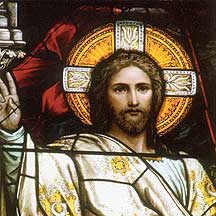







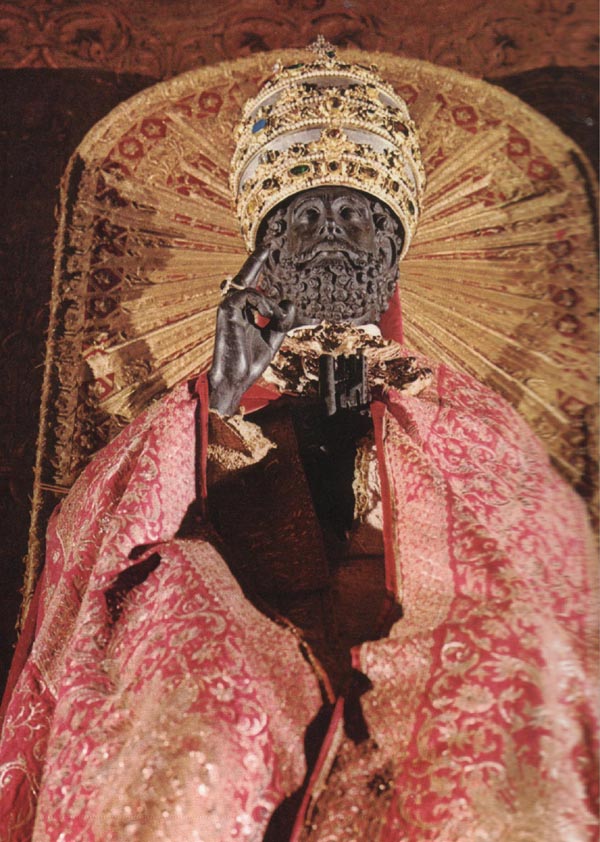
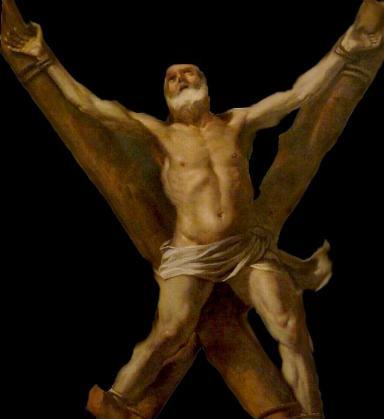




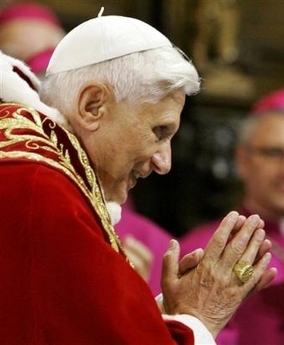






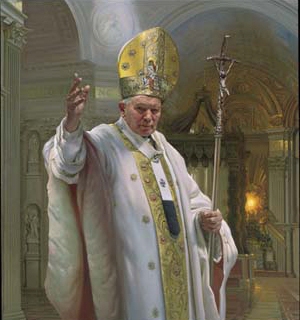
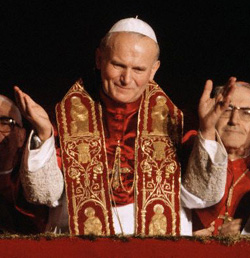
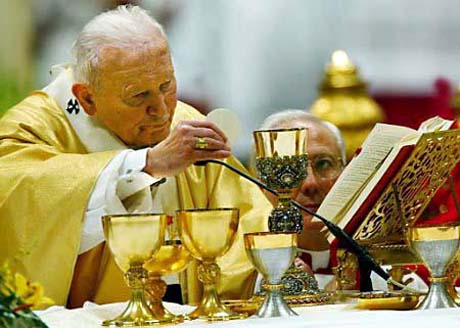







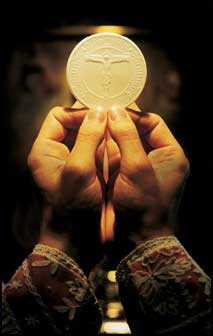
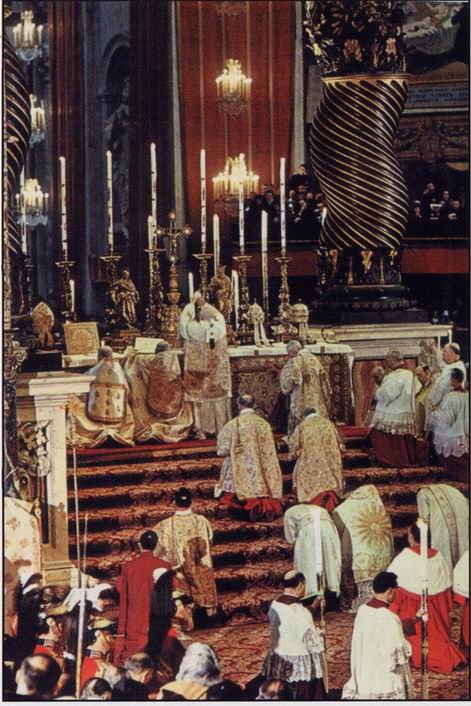

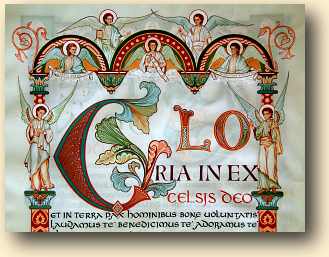

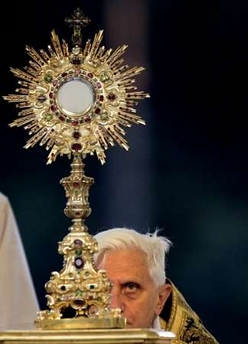


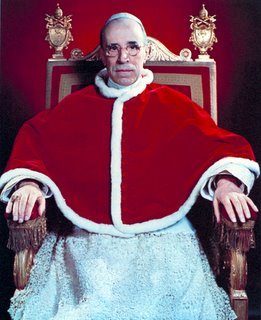




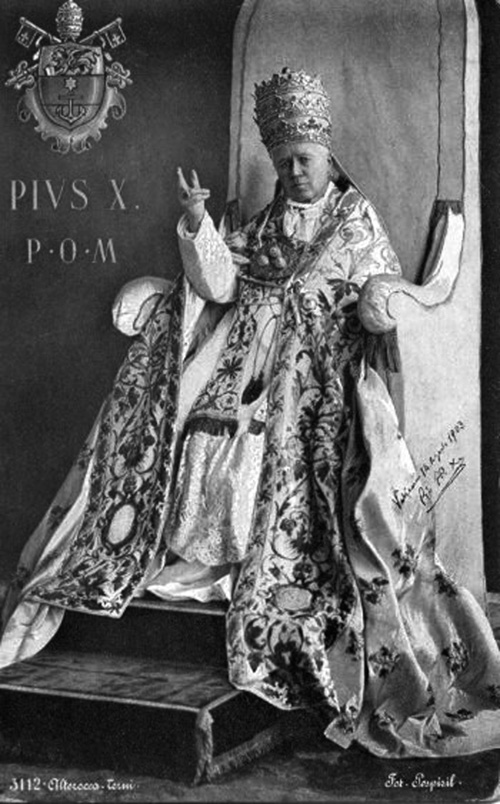



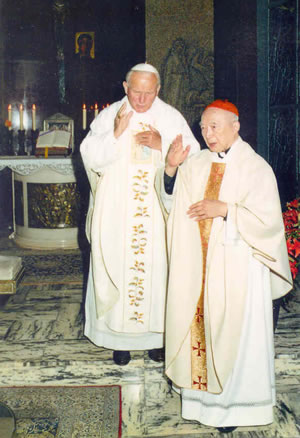






2 comments:
Walking on one's knees is such a beautiful tradition. I cannot tell you how edifying this sight is.
That new building, though, is more than a travesty: it should be smashed, crushed, razed to the ground, burned to a smoldering pile of ash which should then be exorcised, and finally cast into the Tiber. It's just ghastly!
Archistrategos: No!
Let's keep it so that in a few hundred years (if it hasn't collapsed all by itself) people will say: "Gosh! Imagine that during that mad period after Vatican II Catholics actually stooped to building Churches like this."
It can be a permanent monument to the Roman Church's own Iconoclastic Period.
Post a Comment